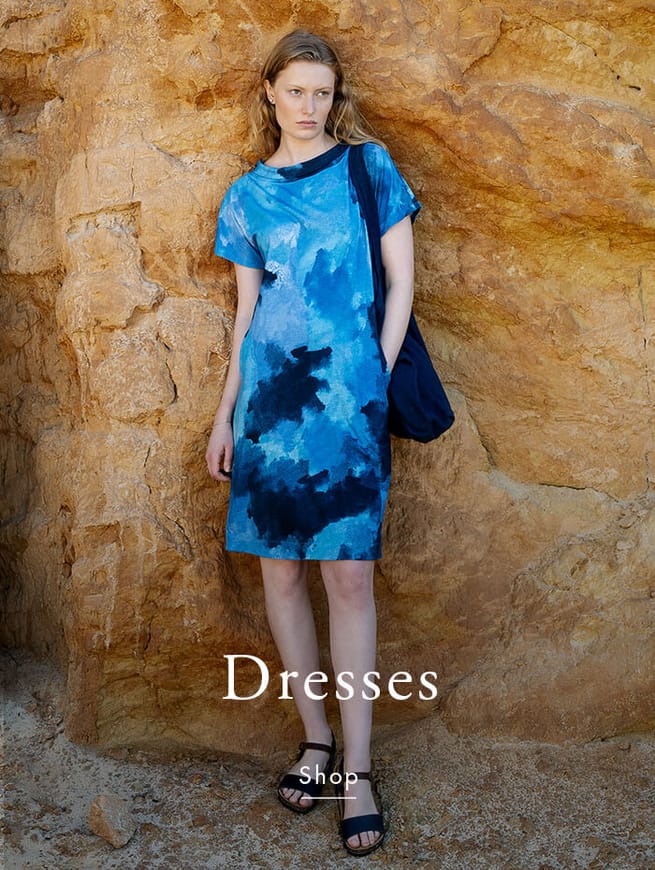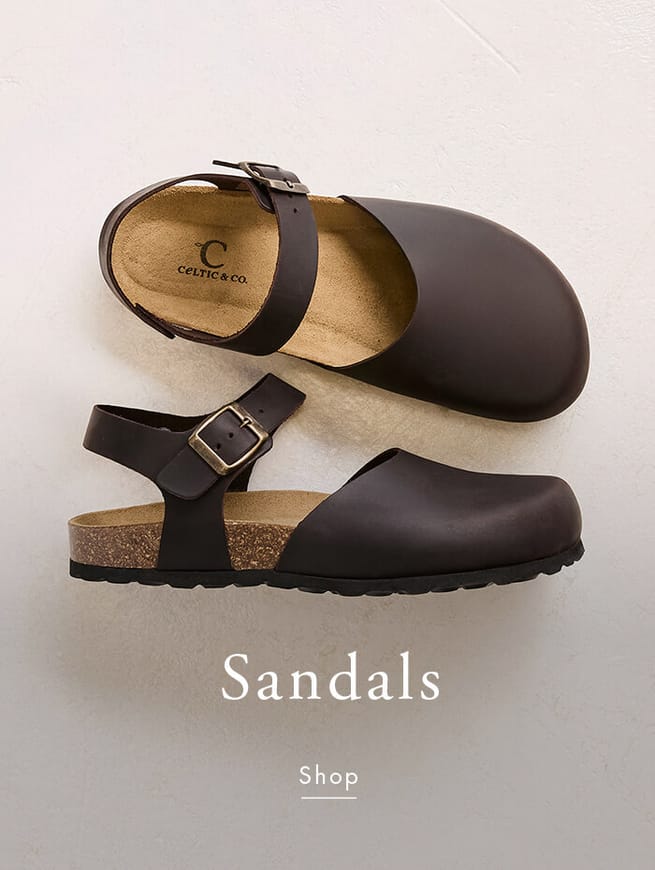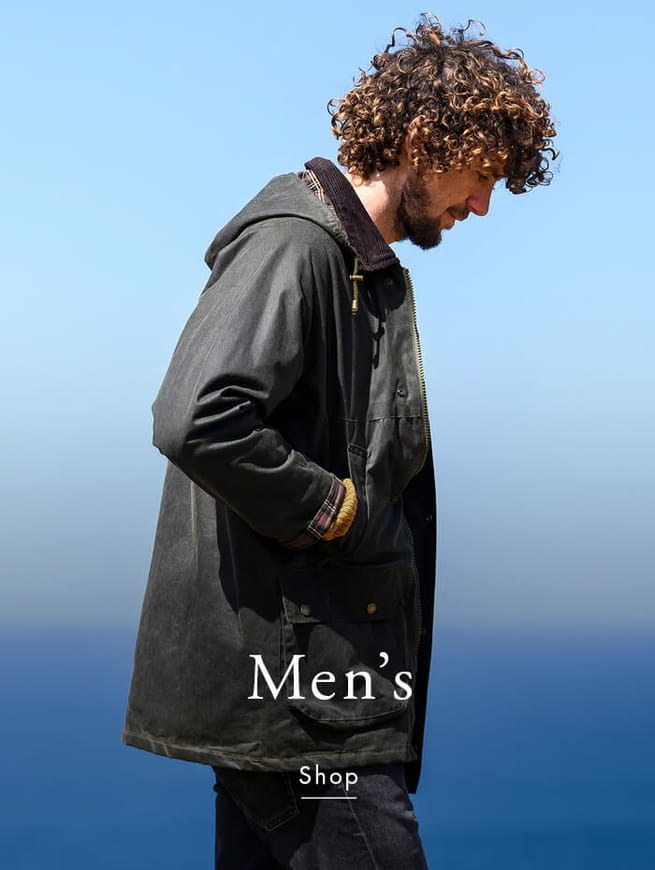At Celtic we choose only the finest organic or natural fibres for all of our products because they are completely renewable, sustainable and a pleasure to wear. Unlike man-made fibres, natural fibres are created from the fibres of animal coats and plant seeds, leaves and stems.
Real Sheepskin
The skins we use to manufacture our sheepskin boots are predominantly from British sheep, with a very small proportion coming from Europe for our trims. They are always a by-product of the UK & European meat industry which operate within the highest regulations for animal welfare. Under normal conditions these skins would be considered waste, but we buy them and transform them into naturally warm, breathable outerwear and footwear that is beautiful, long lasting and irresistibly luxurious. Recycling at its best!
We take extra care to select only the finest materials for use in all of our products. Every piece is designed, made and finished in England or Europe and bears the hallmarks of our fine craftsmanship and attention to detail.
We only use real sheepskins, carefully selected for the purpose and incorporating a myriad of different sheepskins finishes, colours and wool characteristics to create unique, timeless and stylish products. Within our range you will find:
Toscana Sheepskin - Recognised by its beautiful long and tactile wool. Sumptuous and silky, Toscana sheepskin is supple, lightweight and wonderfully warm. The many variations in the wool, ranging from tight curls to loose waves, makes it an excellent alternative to fur.
Merino Sheepskin - Widely regarded as the finest sheepskin. Extra fine and soft, merino sheepskin is especially luxurious.
Wool
Wool - In its natural form wool is a renewable and sustainable fibre that is extremely versatile, which makes it the first choice for clothing. It is wear resistant, provides good insulation against the elements, and has the extraordinary capability of being able to absorb up to 30% of its own weight in moisture without feeling wet. Wool is also dirt resistant, flame resistant, and in many weaves, resists wear and tear.
Merino Wool - A yarn for all seasons – and, designers agree, for our time – merino has numerous assets that make it one of the most comfortable wools to wear. Its superfine, silky fibres help to regulate your body temperature, keeping you warm when it’s cold and absorbing moisture when you’re warm from exertion. Their elasticity means they stretch for a great fit then return to their natural shape, so there’s less chance of your favourite garments sagging. Whether you’re at a dinner party or out scaling hills, with merino you’re looking good.
Geelong Lambswool - Beautiful lambswool is as practical as it is pleasurable. A strong, durable fibre, it can be stretched 30 per cent without breaking and absorb 60 per cent of its own weight in moisture without feeling wet to the touch. We are constantly inspired to create new looks in snuggly Australian Geelong lambswool: the short fibres are carded and spun so that they criss-cross one another and trap more air, giving more warmth, softness and volume for less weight. The fabric keeps its shape to flatter your shape and is ideal for everyday, smart-casual wear.
Shetland Wool - Silky, soft and crimpy. The wool is the finest of all our native breeds and shows an amazing variety of colours and patterns.
Specialty Wool Fibres
We also sell a number of products made from speciality wool fibres, which are further classified by the animal that the fibres come from:
Mohair - From the Angora goat, which is highly resilient and strong. It possesses qualities such as warmth, light weight, crease resistance, durability and softness. Mohair’s lustre, not softness, determines its value.
Cashmere - One of the rarest fibres in the world, cashmere – the moulted downy undercoat of mountain goats – is the epitome of luxury. Ultra-fine and exquisitely soft; light and blissfully warm; adaptable to all climates: it’s the natural choice for chic, sleek, year-round human insulation. Cashmere can be spun into various gauges of yarn, all of which must be handled with love and care. Drawing on Scotland’s 200-year tradition of cashmere clothing production, Celtic is able to offer some especially seductive garments and accessories.
Alpaca - This fibre has been used in the textile industry for centuries. Alpaca fibre has been an increasingly popular choice in recent years, mainly due to the more environmentally friendly impact it has in comparison to other animals. Alpacas are small camel-like animals found largely in South America. The wool that is produced is very rich and silky with considerable lustre. It is similar to sheep wool, but lighter in weight, warmer and softer to the touch. Generally, alpaca wool is available in shades of white; however, colours such as blackish blue, brown, silver grey and blackish brown are also found.
Cotton
Cotton - This fibre is obtained from the cotton plant. It is one of the traditional fibres used in the textile industry and is cool, soft, breathable and comfortable. It is one of the most preferable fibres because the cloth made from it is durable, at the same time having a good drape. Moreover, it is moisture-absorbent and smooth to the touch. One of the other qualities of cotton fabric is that it takes time to dry. It also creases easily, requiring regular ironing.
Organic Cotton - We are all familiar with the health and environmental benefits of organically grown food, but what about the clothes we wear? Non-organic cotton is one of the most intensively farmed crops in the world and accounts for one quarter of global pesticide use, which is why we prefer to use Organic Cotton for our clothing & nightwear at Celtic & Co.
By growing cotton organically, people and the planet are protected. Here are a few reasons why organic cotton is the only choice for a more sustainable future:
Over 8000 chemicals can be used to turn cotton into a t-shirt. 20,000 deaths occur in developing countries each year from poisoning by agricultural pesticides used on crops, of which many can be attributed to cotton. Pesticides and insecticides harm natural habitats.
In some areas, the cost of chemicals is now reaching 60% of farmers' production costs, causing intolerable debts for millions of poor farmers. Crop rotation is at the core of organic crop production, providing nutrients to the soil, helping prevent pest, weed and disease problems and maintaining the soil structure. (Source: PAN-UK)
The soft organic jersey used for our t-shirts and nightwear is grown using traditional farming methods like crop rotation, hand weeding and biological pest control to produce crops with minimal harm to the people and the planet. Non-toxic dyes are also used, resulting in less damage to the environment and no chemical next to your skin.
Dry Wax Cotton - Used in outerwear, it combines the benefits of breathable cotton with practical weatherproofing. Our jackets and coats use lighter weight fabrics while still remaining highly water resistant and wind resistant with outstanding durability. The dry wax fabric we use has all the thorn proof and waterproof qualities of Wax but without the greasy feel.











